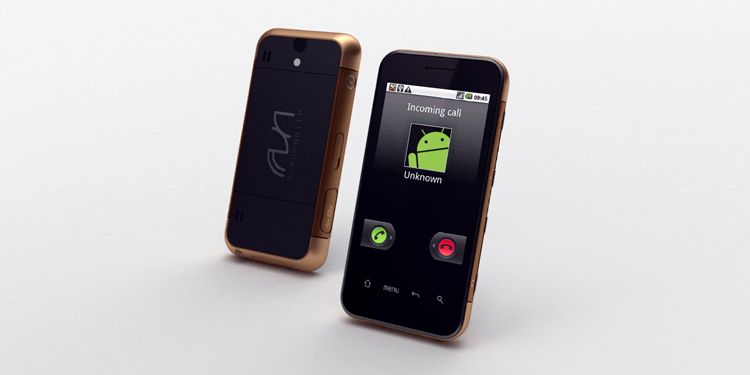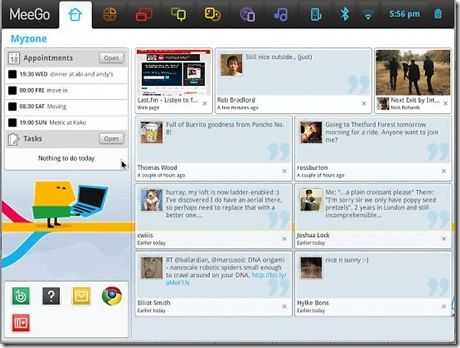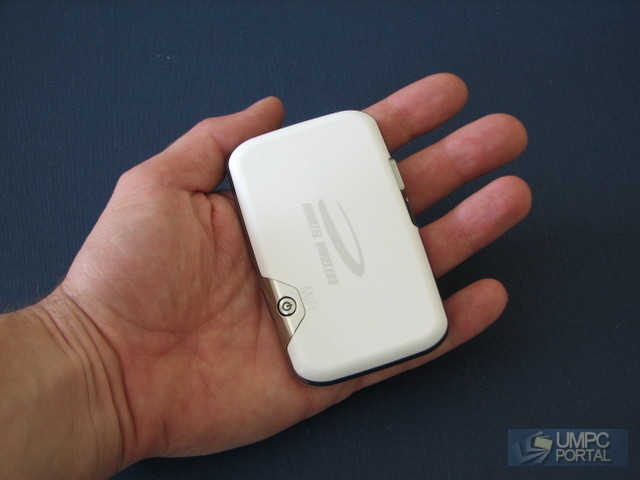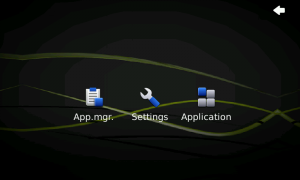
Posted on 04 June 2010
One of the things that makes Android so attractive to consumers is the 60,000+ applications in the market. Its been a pivotal point for the Android eco-systems rapid development and its important for Android on Intel that developers can get their applications running on the x86 architecture.
So it was interesting to receive word that during Computex 2010 Aava Mobile announced Virta Android, a hardware-enhanced software developer kit for Android developers wishing to write applications for smartphones and tablets running the newest Intel Atom Z6xx Series processors.
 The Virta Android is x86 smartphone with a tailored Android SDK ported to the Atom processor. It comes loaded with a capacitive touch screen accelerometer, GPS, haptic feedback, and video/still camera, modem, Wi-Fi, Bluetooth and all connectivity for complete platform and application testing.
The Virta Android is x86 smartphone with a tailored Android SDK ported to the Atom processor. It comes loaded with a capacitive touch screen accelerometer, GPS, haptic feedback, and video/still camera, modem, Wi-Fi, Bluetooth and all connectivity for complete platform and application testing.
It has been developed by Aava Mobile in cooperation with Intel to accelerate development for Android on the x86 platform and is slated to ship in Q3 of this year.
More information can be found at Aava’s website www.aavamobile.com/ and check out JKKmobiles video from Computex 2010;

Posted on 26 May 2010
The MeeGo core code 1.0 and Netbook User Experience builds have just been released.

Obviously I’m downloading it as I write this and i’ll be reporting on it as soon as I can (lots happening this evening though. I might have to leave it until Thursday.)
One of the big changes is that there’s a version available that includes Chrome. Chrome has been chosen as the default browser for MeeGo going forward. Watch out for the Chrome Web App store!
The SDK has also been released (for netbooks only at this stage)
Download links
Let’s get testing!

Posted on 18 February 2010
 As promised at CES, Novatel are moving forward with their plans for the Mifi 3G personal mobile internet hotspot (that has been a life-saver for me at MWC) to include applications and software features. We spoke to the team at the Mifi booth at MWC a few days ago and got a nice demo of a GPS-enabled application. GPS is enabled in the next firmware but I’m getting the impression that it’s going to be a new model of the Mifi with slightly newer features which ‘might’ include, USB charging without becoming a device, better battery life and of course, the GPS. I’m hoping that the firmware comes to existing Mifi’s (or at least the ones with the application processor in them) to enable the GPS that’s already included in the unit.
As promised at CES, Novatel are moving forward with their plans for the Mifi 3G personal mobile internet hotspot (that has been a life-saver for me at MWC) to include applications and software features. We spoke to the team at the Mifi booth at MWC a few days ago and got a nice demo of a GPS-enabled application. GPS is enabled in the next firmware but I’m getting the impression that it’s going to be a new model of the Mifi with slightly newer features which ‘might’ include, USB charging without becoming a device, better battery life and of course, the GPS. I’m hoping that the firmware comes to existing Mifi’s (or at least the ones with the application processor in them) to enable the GPS that’s already included in the unit.
In the video below, Gareth Davis talks about some of the things possible and demonstrates a nice GPS-enabled application served through the Mifi webserver itself.
We have also heard that the EyeFi (Wifi-enabled SD card) application is progressing and we’ll be sure to keep a close eye on it. Clearly a web-based navigation service would be possible and there’s a ton of things that can be done with social networking. Can anyone think of other interesting apps that could be created on this platform?(Apart from the obvious ‘free wifi’ password-inspection app that would be sure to pick up some interesting information if you left it for a few hours in a press conference!)

Posted on 02 March 2009

The alpha SDK for the new Maemo 5 platform has just been released and is packing some interesting new things. Most notably the new UI framework is now available for developers to code around, and as stated “provides a simple and beautiful experience with a finger based full screen context.” Developers are urged to follow this new UI style to keep a consistent user interface.
This release only contains a simplified UI implementation of the Desktop and Application menus, with full versions to follow in the future.

As for planned features, we can guess at many from the list of the new APIs included are (directly quoted):
- Location API: methods to build location-aware applications.
- City Information: methods to obtain information about cities, including city name, country name, and country code.
- Time management: an interface for handling time change notifications and collect relevant time and time zone information.
- Vibra service: methods for triggering and controlling vibrations.
- Device orientation: respond to changes in orientation and discover current orientation.
Maemo will therefore be gaining some nice features that we have become used to on other devices such as vibration notifications and an accelerometer support.
We’re on the lookout for more information.
Source.
 The Virta Android is x86 smartphone with a tailored Android SDK ported to the Atom processor. It comes loaded with a capacitive touch screen accelerometer, GPS, haptic feedback, and video/still camera, modem, Wi-Fi, Bluetooth and all connectivity for complete platform and application testing.
The Virta Android is x86 smartphone with a tailored Android SDK ported to the Atom processor. It comes loaded with a capacitive touch screen accelerometer, GPS, haptic feedback, and video/still camera, modem, Wi-Fi, Bluetooth and all connectivity for complete platform and application testing.

















